Forget charisma and skill - the captains of the best teams in sports history shared 7 subtle traits
7. They are in total control of their emotions.

6. They know when to stand up for their convictions.
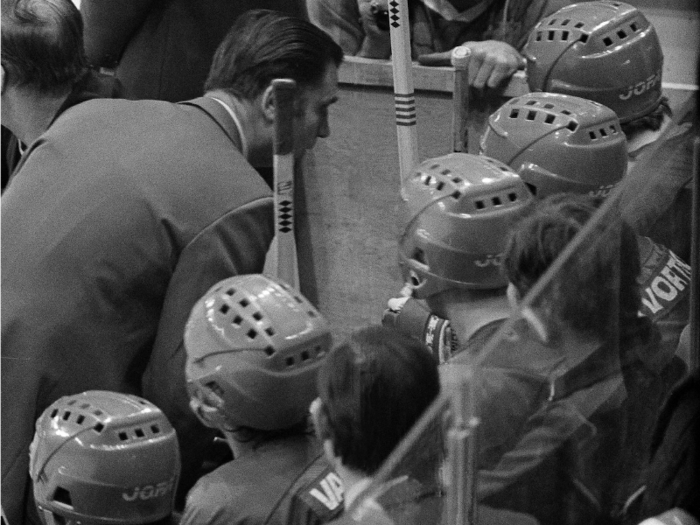
The 1980 Olympic victory of the US men's hockey team over the Soviet Union's team is one of the most celebrated games in American sports. The plane ride back to the USSR for the Soviets, as could be expected, was mostly silent.
As his teammates sat in their seats and drank away their disappointment, defenseman Valeri Vasiliev decided to walk to the front of the plane to hang out with the pilots. From this vantage point, Vasiliev overheard his coach Viktor Tikhonov trash the oldest players on the team, blaming them for their loss.
According to a witness, Vasiliev confronted his coach and yelled, "We agreed that we lost as a team!" He then allegedly grabbed the back of his coach's neck and said, "I will throw you out of this airplane right now!"
Regardless of what actually happened in this confrontation, Vasiliev avoided punishment and won the respect of his team, who named him captain later that year. It was under his captaincy that the Soviet team won three World Championships and an Olympic gold medal.
Walker notes that elite captains certainly do not have regularly antagonistic relationships with their coaches, but rather defend their teammates when they are being unfairly treated, or call out their coaches' most egregious mistakes.
5. They motivate through nonverbal displays.
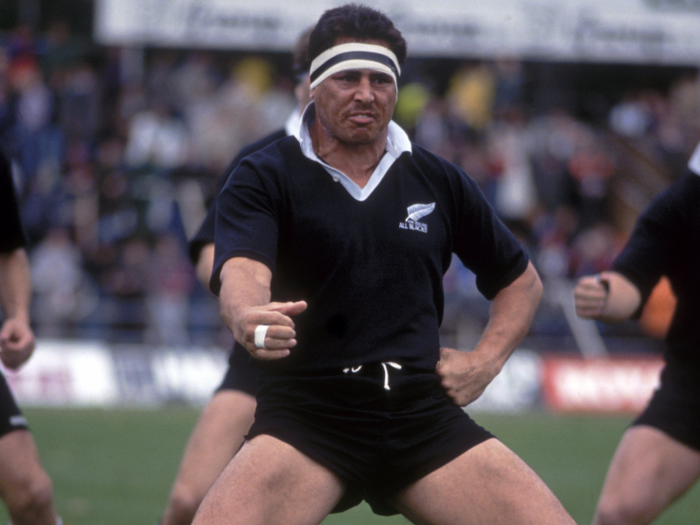
From 1986-90, New Zealand's international rugby team, the All Blacks, blew away their competition. They easily won the 1987 World Cup and had a 49-game winning streak. Wayne "Buck" Shelford was their fearless leader.
One lasting impact of Shelford's legacy was his revitalization of the haka pregame ritual, an ancient war dance of New Zealand's Maori tribe that the All Blacks performed before games. As someone of Maori descent, Shelford hated to see that the ritual had become a lifeless obligation. He took his team to a Maori college, where they learned the historical significance of the haka, as well as how to properly perform it.
The team quickly came to enjoy the ritual, and ahead of a match, they could drew energy from Shelford's passionate performance. As Walker noted, elite captains carry themselves in a way that serves as a model for their teammates.
"Whether or not performing the haka made the All Blacks play better rugby, it was the kind of thing that might strengthen their resolve," he wrote. "It also put Buck Shelford front and center where his teammates could see, hear — even feel — the aggression pulsing through him."
4. They communicate in a 'low-key, practical, and democratic' way.
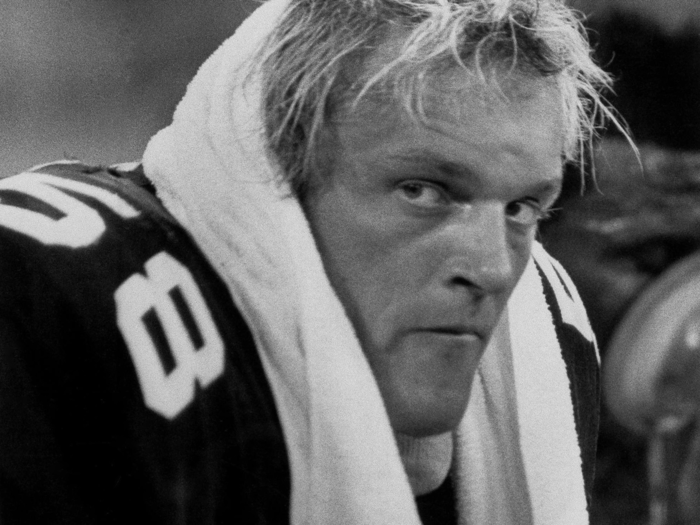
During his career with the Pittsburgh Steelers from 1974-84, linebacker Jack Lambert fostered an image as a rabid animal on the gridiron, and wasn't much more civilized to the press. But in private with his teammates, he was talkative and a careful listener.
As captain, he developed a postgame ritual of meeting his teammates in the sauna to discuss, away from the coaches and microphones, how they played.
"It was a no-bullsh-- zone where candor reigned, accountability was demanded, and no one was above criticism," Walker wrote. Lambert would be the first in and the last out.
Walker noted that of all the elite captains he identified, none filled the Hollywood stereotype of the charismatic leader who gives rousing motivational speeches. What they did possess, as Lambert did, was a careful eye on all of their teammates, and the willingness to listen to them as much as call them out for mistakes or praise their accomplishments.
3. They do thankless jobs.
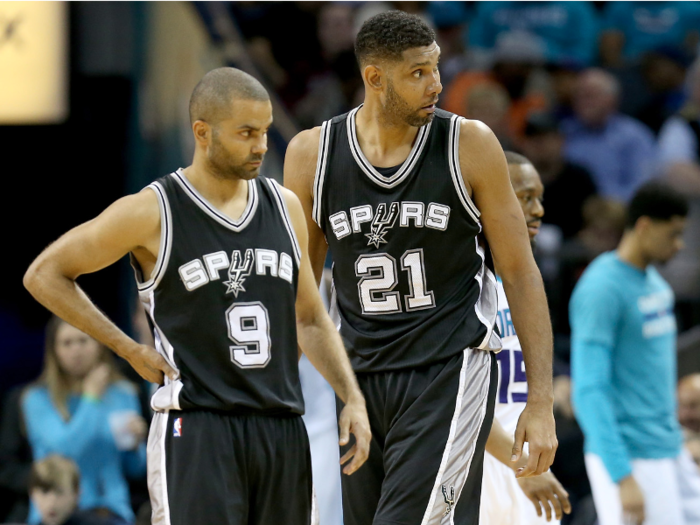
As an undergraduate student at Wake Forest University, Tim Duncan helped his professor write a psychology textbook chapter entitled "Blowhards, Snobs, and Narcissists: Interpersonal Reactions to Excessive Egotism." It became the perfect prologue to his career as the captain of the San Antonio Spurs.
From 1997-2016, the Spurs won five NBA titles and achieved the NBA's best long-term win rate in history at 71%. Also in this time, Duncan never reached the celebrity status of a LeBron James or Kobe Bryant, but it wasn't due to a lack of talent. He deliberately positioned himself as a support player, switching positions if necessary, depending on the composition of that year's team.
He even made the "unheard of" decision to be paid less than his market value so that his team would be able to sign better players.
As Walker said of Duncan and the others he identified, "The great captains lowered themselves in relation to the group whenever possible in order to earn the moral authority to drive them forward in tough moments. ... The easiest way to lead, it turns out, is to serve."
2. They play to the limits of the rules.
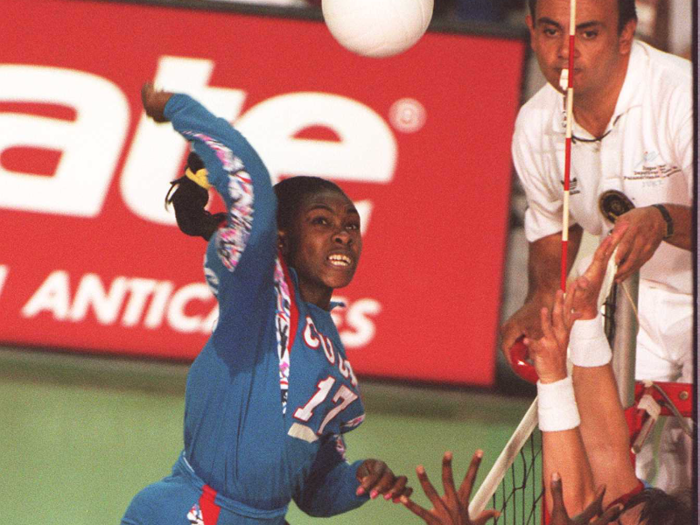
Ahead of the Cuban women's volleyball team's semifinal match against Brazil in the 1996 Olympics, team captain Mireya Luis felt nervous. The Brazilians were an intimidating team, and Luis had seen her teammates get comfortable with their success. Knowing that the Brazilians faltered under the same hostile energy she and her team thrived under, Luis decided that her team was going to get nasty.
As the game unfolded, Luis led a barrage of insults at her opponents. Despite taking several penalties for their unsportsmanlike behavior, the Cubans continued to brutally smack talk until the Brazilian team became visibly shaken — the Cubans were acting; the Brazilians had become genuinely furious and their play suffered. The Cuban team ultimately won the match, and would go on to beat China in the final.
The Brazilians were so angry at the end of the match against Cuba, though, that a fight broke out, and the day is remembered in infamy.
So why does Walker bring it up? He determined that the greatest captains in history knew that they had to get away with as much as possible if it was with the calculated intention of winning. "The world puts a lot of pressure on athletes, especially captains, to be champions and paragons of virtue," he wrote. "But these two things do not always correlate."
1. They are relentless.
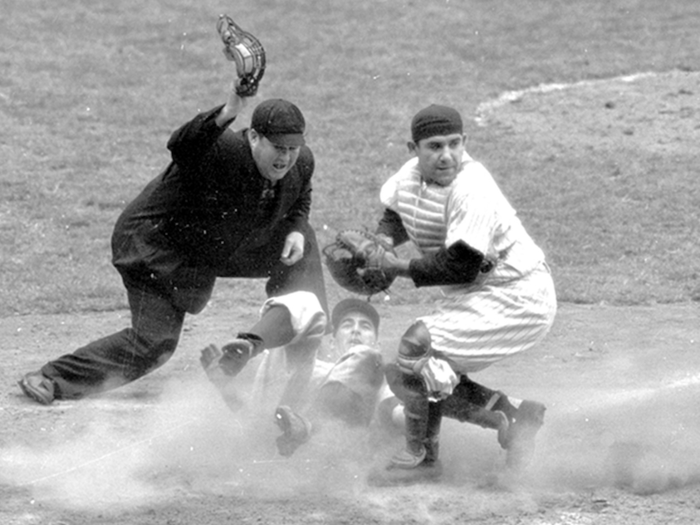
Yogi Berra was never officially named captain, but he was the heart of the New York Yankees team that made history by winning five consecutive World Series titles from 1949-53.
Before becoming an outstanding catcher and team leader, Berra as a rookie in 1946 was a lousy catcher and was so out of place on the team that the front office had to tell the players to stop making fun of him.
Ahead of the 1949 season, the Yankees manager decided to put Berra through an intensive training program with three of the team's best pitchers. Berra embraced his catcher training so dramatically that he and his wife moved to live closer to the pitchers. Within a year, he had transformed from one of the league's worst to the best, and his dedication inspired his teammates.
Walker said that leaders like Berra have what the psychologist Carol Dweck calls the "mastery mindset." That is, when faced with failure, "They didn't think they were dumb; they believed they just hadn't found the right strategy yet."
Popular Right Now
Popular Keywords
Advertisement